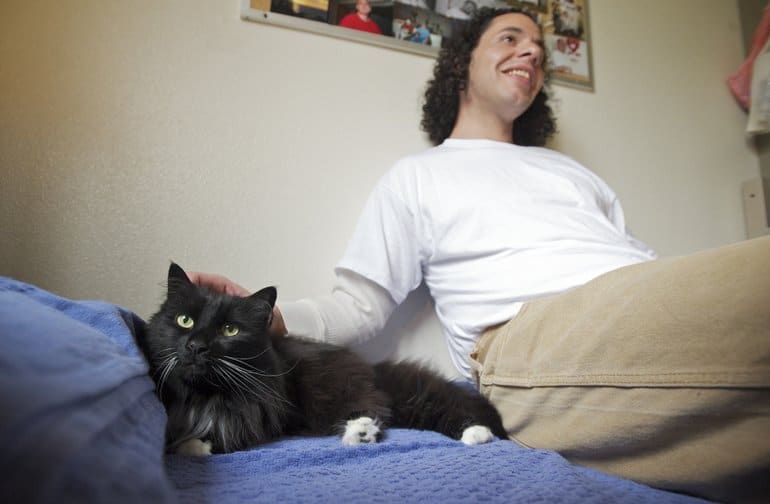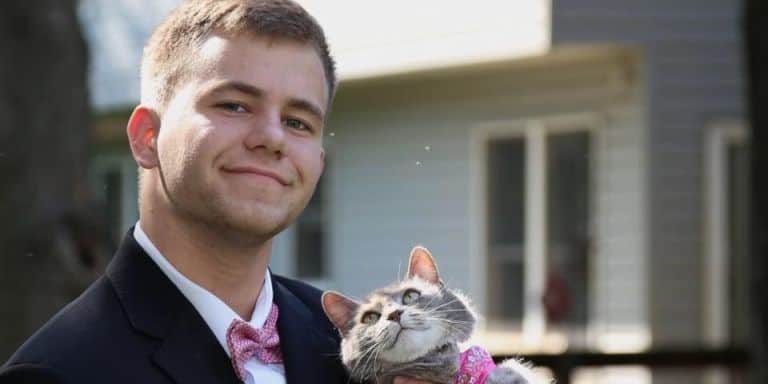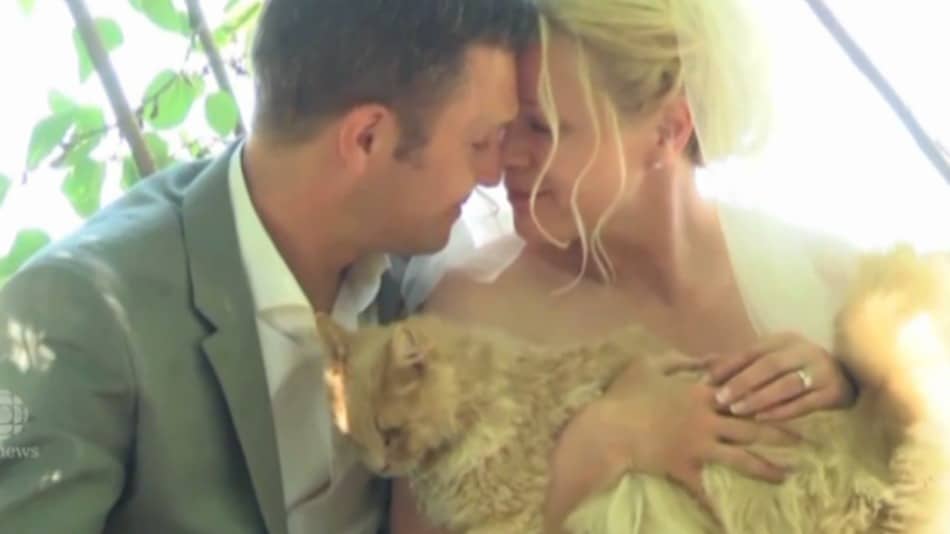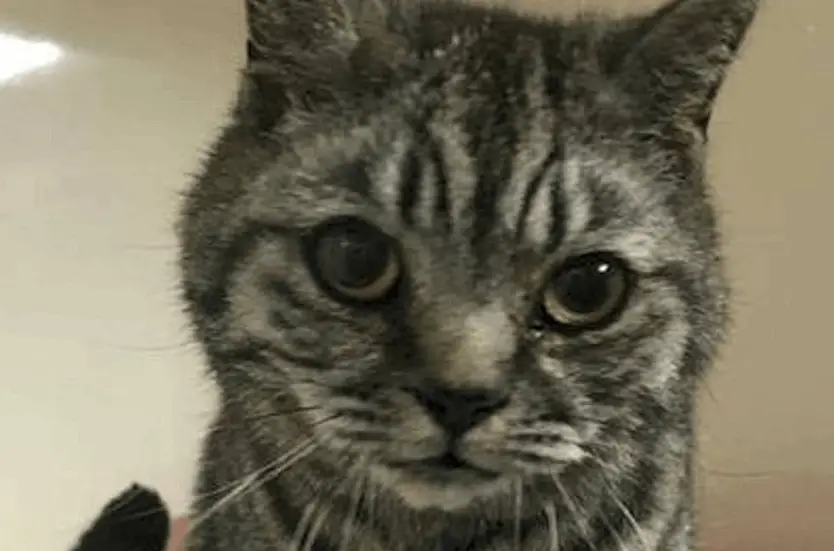
Have you noticed your cat leaving tiny puddles of drool on your couch or in their bed? While a little drooling here and there might seem harmless, sometimes it can be a signal of something more concerning. Understanding why your cat is drooling is important for ensuring their health and happiness.
This guide will explain the benign reasons for cat drooling, the medical red flags to watch out for, and how being an attentive pet owner can make all the difference in your kitty’s well-being.
Purr-fectly Normal Reasons for Cat Drooling
Sometimes, cat drool is perfectly normal and harmless. Here are a few situations where drooling may indicate contentment or other non-worrisome factors for happy cats.
Happy Drools
Have you noticed your cat drooling, particularly during a petting session or while kneading their favorite blanket? A little drool is often a sign of deep relaxation and happiness. Many cats drool as a physical response when they feel safe and content, similar to how we smile involuntarily when feeling warm and fuzzy inside.
Food-Related Salivation
Does your cat drool when they hear the sound of a treat bag opening or catch a whiff of tuna? This is a classic case of food-related salivation, much like Pavlov’s dogs. Your cat’s salivary glands are simply preparing for the meal they think is coming their way, showcasing their anticipation and excitement.
Minor Drooling During Self-Care
Some cats may drool a little bit when they’re engrossed in a thorough grooming session. However, excessive drooling or signs of distress can indicate underlying issues such as oral pain or dental disease.

Medical Causes of Cat Drooling
While some cat drool is harmless, persistent or excessive drooling could indicate an underlying health issue. Here are some common causes why your cat might be drooling more than usual.
Oral Health Issues and Drooling
One of the most common reasons for excessive cat drooling is dental problems. Plaque buildup, tartar, gingivitis, infected teeth, or painful abscesses can irritate your cat’s mouth, leading to excessive saliva production.
Signs to watch for include bad breath, loss of appetite, and pawing at the mouth. Regular dental checkups or teeth cleanings can help prevent these issues.
Nausea and Gastrointestinal Upset
Has your cat been drooling and vomiting? This could indicate nausea caused by motion sickness, dietary issues, or even inflammatory bowel disease (IBD). Excessive drooling in cats often leads to significant discomfort, as they can’t tolerate the excess saliva in their mouths.
Upper Respiratory Infections (URIs)
Cats with upper respiratory infections might produce more saliva than usual, leading to abnormal drooling. Common symptoms include sneezing, nasal discharge, and significant discomfort in the throat.
Foreign Objects
Sometimes, cats accidentally get small foreign objects like strings or toys lodged in their mouths, leading to significant discomfort and sudden, heavy drooling as a symptom of oral pain.
Poisoning and Excessive Salivation
Exposure to toxins is a serious reason for cat drooling. Here are some common household culprits:
- Certain plants (e.g., lilies, philodendrons)
- Cleaning products (containing bleach or ammonia)
- Human medications (like ibuprofen or acetaminophen)
- Insecticides
If you suspect poisoning, seek veterinary attention immediately. Poisoning is a life-threatening reason why a cat may drool excessively and requires swift action.
Other Medical Conditions
Less commonly, abnormal drooling in cats can be a symptom of oral tumors, neurological conditions, or liver disease, necessitating a thorough veterinary exam for proper diagnosis.
When to Seek Veterinary Attention

Knowing when to call the vet for abnormal drooling can be lifesaving. Here are situations that require immediate attention.
Drooling Accompanied by Other Symptoms
If abnormal drooling comes with additional symptoms, it’s time to schedule a veterinary exam.
- Loss of appetite
- Vomiting or diarrhea
- Lethargy
- Pawing at the face
- Bad breath
- Difficulty swallowing
- Changes in behavior
Sudden or Excessive Drooling
A sudden increase in cat drool, especially if it’s profuse, is a red flag. This can indicate acute distress, such as poisoning, a lodged foreign object, or significant discomfort due to dental issues.
Changes in Saliva Consistency or Odor
Thick, stringy, or foul-smelling saliva often points to dental disease or other oral issues in cats, warranting veterinary evaluation.
Be a Proactive Cat Parent
Understanding why your cat is drooling and when to worry is essential for responsible pet ownership. Observe your cat’s normal behavior and look out for anything unusual. Regular vet checkups are key to catching potential issues early and keeping your furry friend happy and healthy.
Have you experienced your cat drooling? Share your story with a fellow cat parent who might find this helpful!
The Catington Post is reader-supported. That means, if you make a purchase through links on our site, we may earn an affiliate commission. All images and names which are not the property of The Catington Post are the property of their respective owners.




